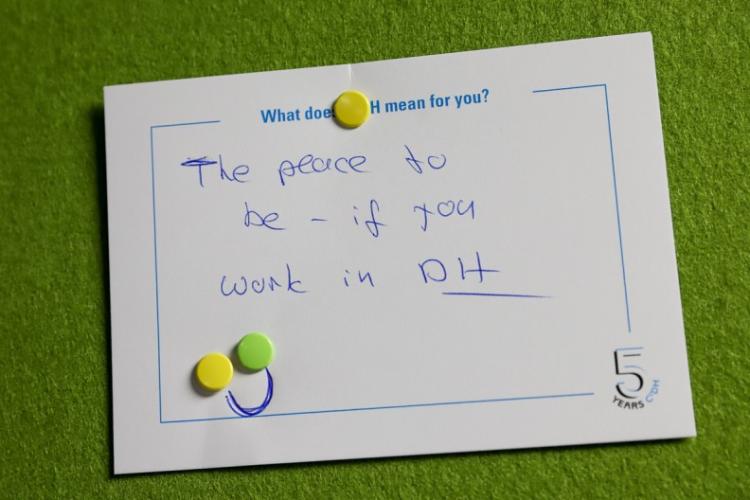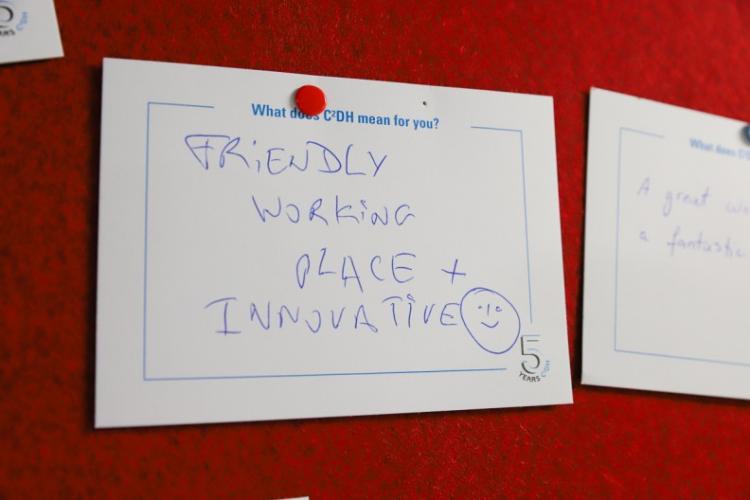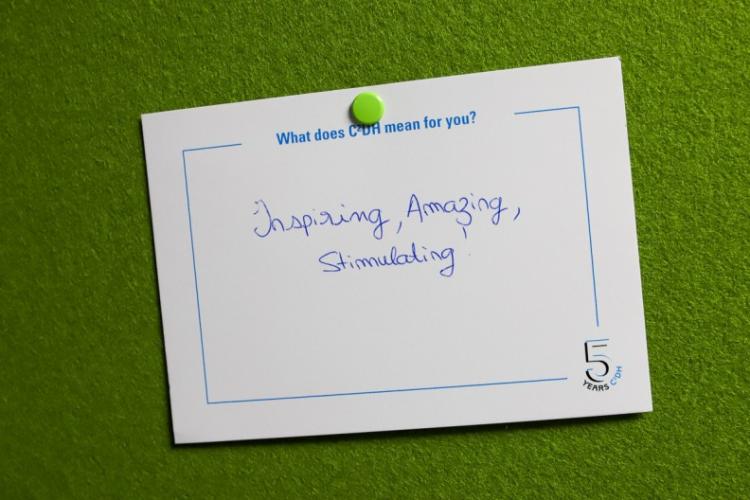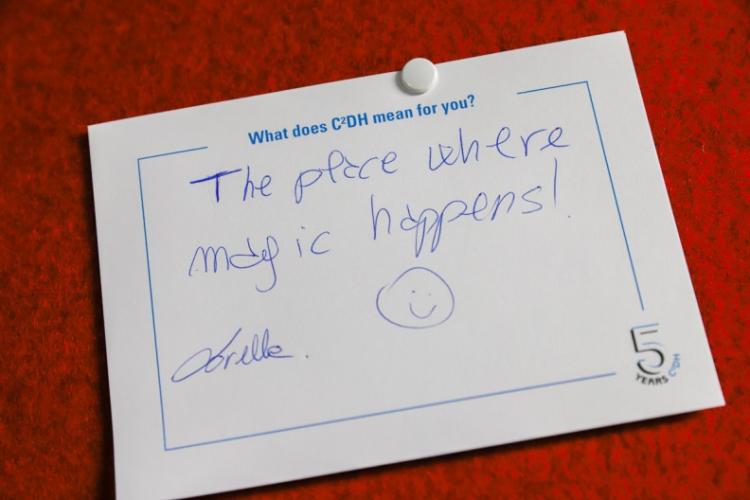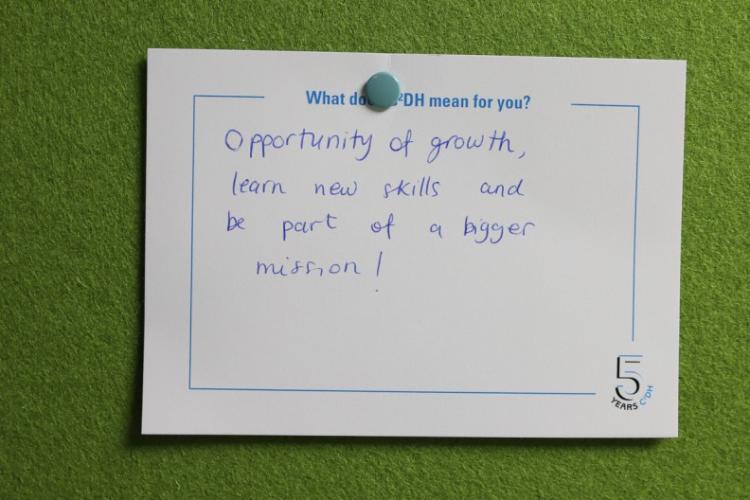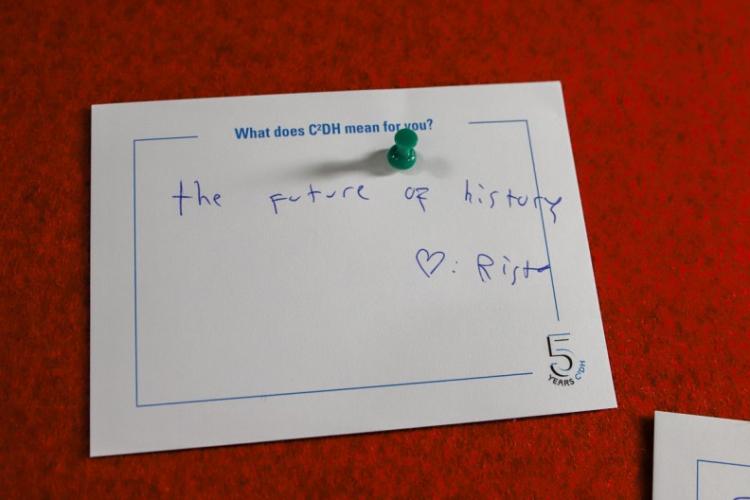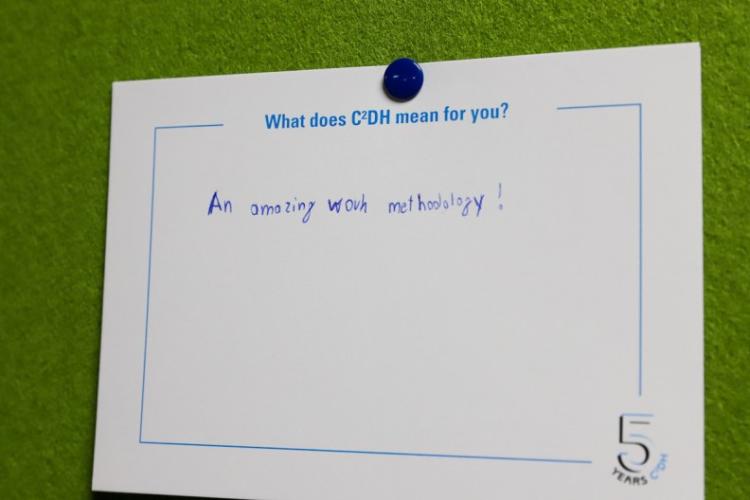The C2DH team comprises 119 people of 26 different nationalities who work together in a dynamic and stimulating environment.
On one hand, the centre benefits from public funding through the University of Luxembourg, but its development is also made possible by the acquisition of third-party funding, which represents more than a third of the resources used by the centre. The centre has consolidated its position in terms of competitive research by obtaining funding from the Luxembourg National Resesarch Fund (FNR), the Swiss National Science Foundation (SNSF), the European Commission, European Cooperation in Science and Technology (COST), the Digital Research Infrastructure for the Arts and Humanities (DARIAH), the Rothschild Foundation Hanadiv Europe and the Andrew W. Mellon Foundation in the United States.
In addition, the centre has successfully developed a business model for contract research which combines basic research with the development of innovative public history outputs. Major contract research agreements have been signed with both public institutions (including the Ministry of State, the Ministry of Labour, Employment and the Social and Solidarity Economy, the Ministry of Foreign and European Affairs, the Ministry of Justice, the National Youth Service (SNJ), the Chamber of Employees (CSL), the Inspectorate of Labour and Mines (ITM), Luxembourg Railways (CFL), POST Luxembourg, the National Institute of Statistics and Economic Studies (STATEC), Dudelange Municipal Council, the German-speaking Community of Belgium and Saarland University) and private companies (such as BGL BNP Paribas and La Luxembourgeoise). The centre also enjoys the support of the Fondation André Losch, the Fondation luxembourgeoise pour la Mémoire de la Shoah and the European Capital of Culture 2022.
The C²DH is built on a governance model aimed at empowering all people working at the Centre, focusing on strengths and skills and driven by the principle of “shared authority and shared responsibility”. The goal is to become a community of practice based on a moral economy of shared authority and accountability, with transparent decision-making processes, a shared information policy and the strategy of creating a unified approach between operational and governance tasks. The main operational responsibility lies with the Management Team.
The centre also has a Scientific Committee, which plays a key role in quality assessment. The Scientific Committee meets on a yearly basis to evaluate scientific output and give strategic advice on the development of future research projects, network activities and outreach initiatives.
To facilitate the successful integration of the centre into Luxembourg society and public life, an Advisory Board has been set up, composed of a number of key figures known for their expertise in the political, economic and cultural sectors. The role of the members of the Advisory Board is to guide, assist and support the Director of the C2DH.
